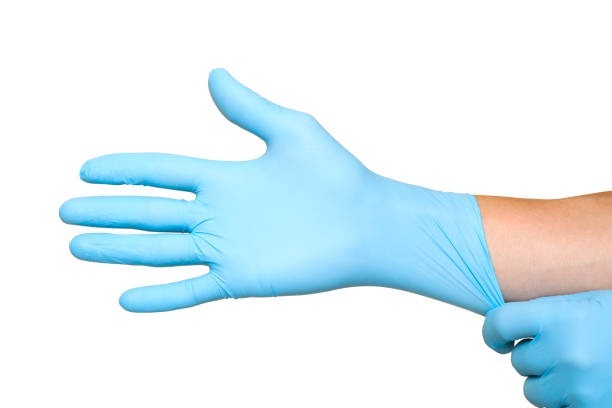Contact us
- Burjuman Business Tower Office 2414 Bur Dubai, P.O. Box: 390667, Dubai UAE
- healthcare@gazminintl.com
- (+971) 4235 5866 / 67
-
Monday – Friday :
9:00 AM – 6:00 PM
Types of Gloves
Examination Gloves
Examining gloves are majorly used by healthcare professionals or caregivers to protect themselves and the others from cross contamination during examinations and other procedures. They are suitable for use in contaminated conditions and can be discarded after each use. Medical exam gloves may not need to be of the highest quality or thickness. They are available in latex, vinyl, or nitrile, with thickness levels to meet the requirements of the employees performing the examination.
Surgical Gloves
Surgical gloves are predominantly used by surgeons and other health workers who come into close contact with blood, infections, sharp equipment, and other potentially dangerous specimens, materials, or substances. Those who should wear surgical gloves must be of high quality, as these healthcare professionals are at the highest risk of infection and infection transmission when compared to other field workers. Because of the extreme durability and puncture resistance, nitrile gloves are popular amongst surgeons.

Major Types of Gloves based on material:
Nitrile Gloves
Used for:
- Healthcare/Medical Examinations
- Dental Examinations
- Food Preparations
- Janitorial/Maintenances
- Tattoo Parlors
- Industrial applications
Advantages of Nitrile Gloves:
- High puncture and chemical resistance
- Great protection against pathogens
- Provide good comfort, soft and flexible
- Easy to detect tears
- Can withstand mild temperatures
- Long Shelf Life: Often 5-Years
- Latex-Free
- Allergy-free
- Higher level of protection and durability.
Disadvantages of Nitrile Gloves:
- Reduced dexterity or ability to execute delicate tasks than latex
- More stiff when compared to Latex
- Reduced touch sensitivity than latex
- Most expensive disposable option in glove
Latex Gloves
Used in:
- Healthcare/Medical Examinations
- Dental Examinations
- Food Preparations
- Janitorial/Maintenance
- Salons/Spas
Advantages:
- Extremely flexible
- Provide excellent fit and touch sensitivity
- High tensile stretch and ability to resist tearing when compared to others
- Moderate protection against pathogens
- Both options are available: Powdered and powder-free.
Disadvantages:
- Can cause Latex allergies and skin irritations.
- Latex may be prohibited in some jurisdictions
- Should not be used with substances like soils, oils, gas, or grease
- Tear are difficult to detect.
- Second most expensive disposable glove choice
- Moderate Shelf Life: Often 1-3 Years
- Moderate protection
Vinyl Gloves
Used for:
- Food Preparations
- Janitorial/Maintenance purpose
Advantages of Vinyl Gloves:
- Lightweight and soft.
- High quality while being cost-effective
- Made of PVC
- Moderate protection
- Offer a moderate level of resistance to certain compounds, such as common alcohols.
- Can be used to manage low-heat conditions, such as hot meals.
- Long Shelf Life: Often 5 Years
- Latex-Free
Disadvantages of Vinyl Gloves:
- It has a low tensile strength, which means it can easily tear.
- Insufficient pathogen protection
- When compared to nitrile and latex, it has a looser fit and less dexterity.
- When compared to nitrile and latex, they have a looser fit and less dexterity.
- They are less costly than nitrile and latex.
- Not as durable
